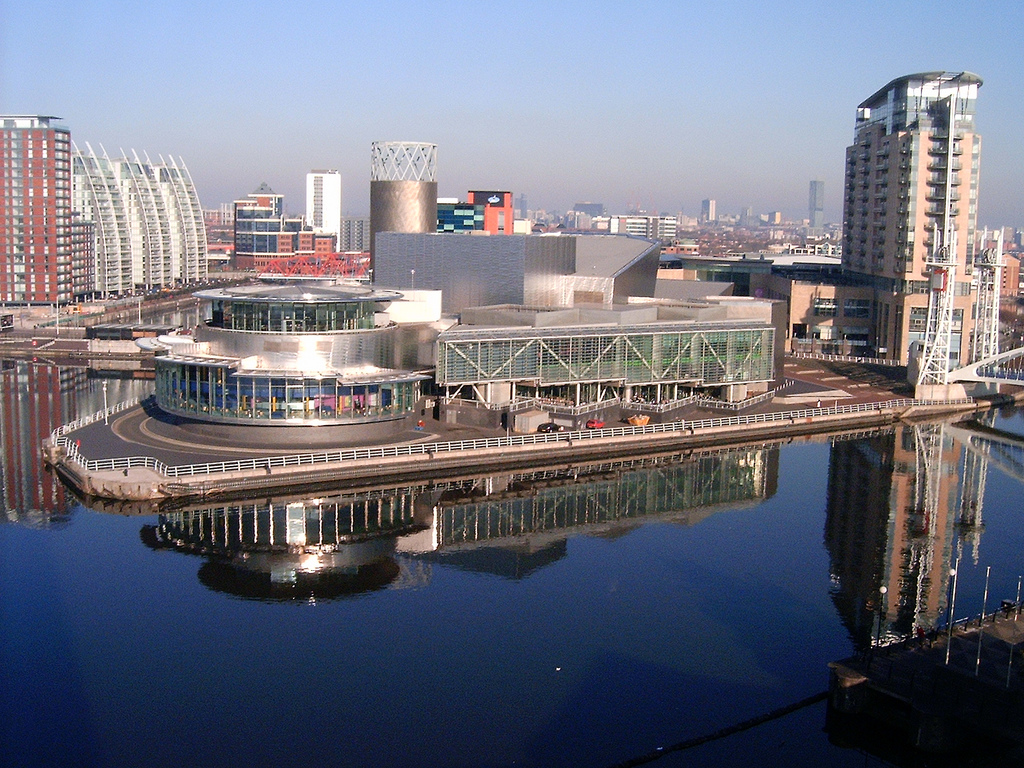Property Investing - Positive Change and Keeping a Low Profile - Privacy
10-01-2019
Property Investing - Positive Change and Keeping a Low Profile - Privacy
PropertyInvesting.net team
More objective guidance and insights for property investors. Our aim is to help you improve your investment returns, flag key risk areas and stimulate strategic thought so you can position your portfolio to maximize gain, for our many thousands website visitors a day and the thousand people that sign up to your Newsletter. This Newsletter covers two key topics:
1 Basis for Investing – Capital Value Increase, Cashflow and Education
2 Privacy – Keeping a Low Profile
---------------------------------------------------------------------------------------------------
1 Basis for Investing – Capital Value Increase, Cashflow and Education
Basis For Property Investment: Property investment is about making a combination of 1) capital value increase (equity); and b) cashflow – or net income. Some investors focus on the former, others on the latter – and many on both. If you upgrade a property then immediately sell it – your focus is capital value increase. If you purchase a rental property – your focus is more likely to be on net in come – or yield (the yield is the net income divided by the investment).
come – or yield (the yield is the net income divided by the investment).
Positive Change: To capture high capital value increases and returns on re-development investments – its best to be close be in an area undergoing positive change. This is also true of cashflow focussed investors – albeit it is less important. Regardless, for both future net income forecasts, current net income and future capital value increases – its very important to focus on investments in developing areas undergoing positive change. Below we set out come key criteria you can use:
• Education – good and improving schools, colleges and Universities
• Infra-structure – new and improving roads, rail, tube, buses, trams, bridges – reducing travel times and improving connectivity 
• Population – increasing population – young people and families moving in and also of births – avoiding depopulating areas with aging populations of less wealthy people
• Businesses-Jobs – increasing business, commerce, offices, new businesses, high technology and/or financial services businesses, major new jobs creation areas and business parks
• Housing Supply – areas where levels of building area projected not to keep pace with demand from increasing population and people with higher paid jobs
• Culture-History – area with historic centres that are popular with tourists and offer pleasant shopping, cafes, restaurants, pubs, nightlife, theatre, cinemas, hotels, attractions
• Crime – areas with improving crime statistics
• Regeneration – areas that are rapidly improving as they regenerated by investments, inwards flows of capital and inward flow or more wealthy people and jobs
Big Business: In summary, if big business is moving in and the place is popular and attractive to live, whilst demand is strong and building-supply lags demand, then property prices will rise sharply. Rents will also rise faster than normal and with it, yields will rise in future years.
Identification: The next question in the UK is of course to try and spot which areas these might be. The areas concerned may or may not already be expensive – but it’s not about the current cost, it’s about future positive change and improvements that will drive prices even higher. A few areas which tick all the boxes:

• Cambridge
• Oxford
• Newbury
• Shoreditch-Whitechapel-Hackney – London
• Soho – London
• Canary Wharf - London
• Tottenham Court Rd – London
• Ealing – London
• Acton – London
• Bath
• Bristol
• Salford near Manchester
All these areas have new businesses moving in, major new infra-structure upgrades and increasing wealth, population growth with a shortage of supply of properties. Despite the Brexit uncertainties, we can’t see this changing in the long run.
Brexit Crisis: The UK has been in a 3 year period of hiatus - suspended animation - leading to the current crisis in Parliament. The longer this Brexit saga continues the more chance of lasting economic damage and a Labour government getting into power. This is why Labour have been voting against anything out in front of them - they want to make the Tory government look stupid to try and capture votes - they don't know what they want on Brexit - the only thing they are sure about is they want the power. This miserable situation is likely to continue for years - and every month that goes by the chance of Corbyn slipping into Number 10 increases. So for all property investors, its time to either go slow or consider getting out. Its certainly not the time to be making big risky bets - because a Labour government with all the tax, regulation, tenants rights and public sector expansion could be just around the corner.
If Labour get in - we will see:
-
Sterling declining
-
Inflation rising
-
Public sector expansion
-
Private sector contraction - recession
-
More taxes
-
More unemployment
-
Slower GDP growth
-
The government deficit increasing dramatically
-
Ending in recession, low investment levels and wealthy people fleeing the country
2 Privacy – Keeping a Low Profile
Jealousy and Envy: Human nature unfortunately can be rather negative to people who are wealthy or have many assets. Many people are either envious or jealous of people who have more than them. This is part of the trait of a “Nimby” that we all see in the property development business. However, be it someone driving a Rolls Royce or Ferrari, someone owning a super yacht or building a massive mansion – people will often try to undermine people with wealth – possibly aiming to “bring them back to earth”. However, if you have huge wealth but don’t flaunt it – live fairly modestly and don’t boast about your wealth then most people will likely respect this – they will like you for it.
Don’t Become a Target: In property investment, its normally better to be seen as mod est and not too wealthy even if you are super rich. You are less likely to have people complaining about your developments or investments. You will also be less of a target for unscrupulous scamsters – or people that decide to sue you only because they know you have a lot of money. They can threaten you, try and damage your reputation if you are in the public eye and wealthy. But if you are out of the public eye and very wealthy – when hardly anyone knows about the size of your wealth – then you are far less likely to be the target of scamsters, burglars, thieves and litigative individuals. The less attention you personally attract, the less resources you will require to fend off these people who are trying to take you to the cleaners because they know how wealthy you are. The more time you have to focus on your investments, the better your business will do.
est and not too wealthy even if you are super rich. You are less likely to have people complaining about your developments or investments. You will also be less of a target for unscrupulous scamsters – or people that decide to sue you only because they know you have a lot of money. They can threaten you, try and damage your reputation if you are in the public eye and wealthy. But if you are out of the public eye and very wealthy – when hardly anyone knows about the size of your wealth – then you are far less likely to be the target of scamsters, burglars, thieves and litigative individuals. The less attention you personally attract, the less resources you will require to fend off these people who are trying to take you to the cleaners because they know how wealthy you are. The more time you have to focus on your investments, the better your business will do.
Keep a Low Profile: So the guidance we are giving is simple – keep a low profile, don’t brag to anyone about your wealth – apart from may sharing with your family partner – and try and avoid becoming a target for jealous, envious or dishonest people. If anyone asks you about your properties, its best to be totally vague then if they press you further politely say with a smile “its none of your business”, or more politely “sorry, I don’t divulge my private business details as a matter of principle to anyone”.
Extroverts and Bragging: For many people this is incredibly difficult because as  soon as they make some serious money, they want to go out and tell the whole world how they did it – possibly to get some much needed adulation or boost their self-esteem. It is particularly difficult for people with an extrovert personality – that frankly just want to tell anyone about the first thing that comes into their heads. They will put this on Facebook and Twitter – so the whole world will know. Extroverts will often talk about money if they are keen property investors – that’s only natural after all – its on their mind and they get excited about it – passionate about it. But hold back from doing this, because although the people you tell will seem as if they are impressed or interested – and ask plenty of questions – you might find it really upsets them because they have not been so fortunate or do not have the skills, risk profile or resources to make money in property. They actually find it threatening – they feel like you are trying to get “one over on them” and “make them feel small”, instead of the truth – they you are sharing something you are excited about with what you thought was a friend.
soon as they make some serious money, they want to go out and tell the whole world how they did it – possibly to get some much needed adulation or boost their self-esteem. It is particularly difficult for people with an extrovert personality – that frankly just want to tell anyone about the first thing that comes into their heads. They will put this on Facebook and Twitter – so the whole world will know. Extroverts will often talk about money if they are keen property investors – that’s only natural after all – its on their mind and they get excited about it – passionate about it. But hold back from doing this, because although the people you tell will seem as if they are impressed or interested – and ask plenty of questions – you might find it really upsets them because they have not been so fortunate or do not have the skills, risk profile or resources to make money in property. They actually find it threatening – they feel like you are trying to get “one over on them” and “make them feel small”, instead of the truth – they you are sharing something you are excited about with what you thought was a friend.
We will give you some examples about what can happen if your brag about your property wealth.
1. Brag to Your Builder: You live in a large house and when you first meet your builder yo u brag that you own ten other properties. You don’t realise but he builds this into the prices he charges compared to your neighbours-locals, because he thinks you can afford it – and worse still, he’s told all his mates – the handyman, chippy, window cleaner and gardener about your property portfolio and they all think the same – they set their prices accordingly and you don’t even realise. All the quotes you get are local rates plus 30% premium because they know you are wealthy. Note: the only thing your builder needs to know is that you are able to pay straight away any bills without risk of default.
u brag that you own ten other properties. You don’t realise but he builds this into the prices he charges compared to your neighbours-locals, because he thinks you can afford it – and worse still, he’s told all his mates – the handyman, chippy, window cleaner and gardener about your property portfolio and they all think the same – they set their prices accordingly and you don’t even realise. All the quotes you get are local rates plus 30% premium because they know you are wealthy. Note: the only thing your builder needs to know is that you are able to pay straight away any bills without risk of default.
2. Brag to your Brother: You tell your brother exactly what your net worth is – without telling him how much debt you have. He things you are a multi-millionaire. It gets around the family. Over time, you notice you are absent from the family Wills – because they all think you do need the money and think that’s fair. You are expected to pay for meals and drinks when you go out – people are offended when you offer to fairly split the bills. You moan about your high mortgage payments and everyone criticises you – saying you don’t know how lucky you are.
3. Brag to a Work Colleague: You tell one colleague at work who you trust that you o wn ten properties – she is staggered. She can’t stop thinking about it. Every time you are on your phone, she envisages you are talking to someone doing a property deal. Worse she tells your boss and a few colleagues and your boss is severely envious – he rents a home and could never afford to buy a house because he spent all his money on fancy holidays. Someone else on your team got to hear the gossip – then approaches you – and says “I heard you don’t need to work anymore because you own ten properties?” – which leaves you rather speechless. The company has to shed 20% of its workforce after a bad year. Your boss gets with HR and things it would be best to release you because they think with ten properties you don’t need the salary anymore and they might actually be helping you – there are other people that do a similar job but need the money more they think. Your boss also finds it difficult to deal with the fact you are far more wealthy then him. What they don’t realise is that you need the wages to pay your mortgages – and losing your job impacts you far more than anyone else. It’s too late – you bragged, lose your job then within six months – unemployed – when the severance package runs out you have to default on your mortgages and start a fire sale of your properties whilst starring bankruptcy in the face.
wn ten properties – she is staggered. She can’t stop thinking about it. Every time you are on your phone, she envisages you are talking to someone doing a property deal. Worse she tells your boss and a few colleagues and your boss is severely envious – he rents a home and could never afford to buy a house because he spent all his money on fancy holidays. Someone else on your team got to hear the gossip – then approaches you – and says “I heard you don’t need to work anymore because you own ten properties?” – which leaves you rather speechless. The company has to shed 20% of its workforce after a bad year. Your boss gets with HR and things it would be best to release you because they think with ten properties you don’t need the salary anymore and they might actually be helping you – there are other people that do a similar job but need the money more they think. Your boss also finds it difficult to deal with the fact you are far more wealthy then him. What they don’t realise is that you need the wages to pay your mortgages – and losing your job impacts you far more than anyone else. It’s too late – you bragged, lose your job then within six months – unemployed – when the severance package runs out you have to default on your mortgages and start a fire sale of your properties whilst starring bankruptcy in the face.
4. Brag to your tenants: You tell some of your tenants that you own ten properties –  they think you are super wealthy and stop paying their rent – because they think you won’t feel then burden of not receiving their rent for a while.
they think you are super wealthy and stop paying their rent – because they think you won’t feel then burden of not receiving their rent for a while.
Don’t Brag: As you can see from these examples, bragging or mentioning about the size of your portfolio or your net worth can back-fire in a serious way. It can damage your career, even lead to your preferentially being made redundant, with absolutely no re-course. There are very few scenarios where bragging about your property wealth leads to positive outcomes. Hence the guidance – and it’s a very important one – “don’t give anyone any ammunition to shoot you down” and just “don’t brag or mention to anyone about your property wealth or net worth”. We hope you can see how this strategy makes sense. You just don’t need people judging you all the time based on the size of your property portfolio and net worth. It’s not fair on you. And it’s not fair on them to make them feel threatened by your wealth. You want friends – and the friends you need to attract are those that like you as an individual not because of your wealth, or want to get close to you only so they can undermine you because they are jealous.
We hope this Newsletter has given you some interesting insights as a property investor. If you have any queries, please contact us on enquiries@propertyinvesting.net

